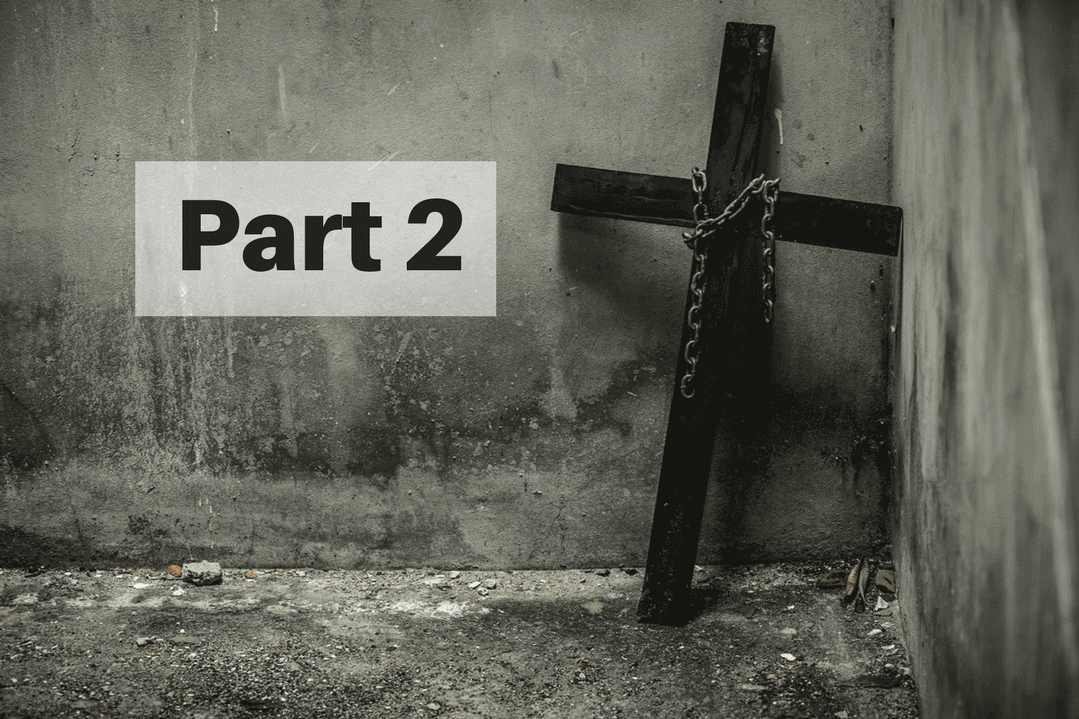What Does Real Ministry Look Like? Part 2
What Does Real Ministry Look Like? Part 2
What is the image of God? What does it look like? How do we obtain it? Many people interpret it from their own perspective, relying on their own background and context. There is nothing inherently wrong with this because a man can only understand the information he’s presented with within the confines of his own worldview. Unfortunately, this understanding will be short of its true definition. Quite possibly the greatest understanding of the image of God comes when we look through the eyes of the poor. From this view, we can better understand who God is and what He is calling us to do because we are starting from a low position. Those who choose to stand shoulder-to-shoulder with the poor and the weak will most likely comprehend the gospel in its truest sense and will fully understand God’s compassion. It is this compassion that is the underlying DNA of His image.

If a believer is to understand ministry properly, he must first understand that ministry happens out of compassion and that compassion grows out of standing in the shoes of those in great need of that ministry. The image of God question is by far the most important to be answered by anyone who desires to be in ministry. How we define that image will directly affect every single aspect of our lives and, if defined properly, will bring us to the real definition of ministry, that is, compassionate ministry.
When we’re dealing with the image of God, we cannot help but go back to Genesis where Adam and Eve were created in that image. But what did that image look like? One might be tempted to say that it means freedom. But who has more freedom: the poor man who has relatively few choices or the rich one who is enslaved to an endless cycle of consumption and is forced to work harder to maintain a status that’s never satisfied? True freedom is not in the exercise of doing whatever we want to do, because we cannot always do what we want to do, even if we have the free choice to do it. For example, if you have diabetes, you might have the freedom to eat candy, but you know your health will be adversely affected if you do. So freedom cannot be defined as being able to do what we want. True freedom is the expression of who you are, complete with all your gifts and all your shortcomings.
True freedom is the recognition that there is nothing in this world that can prevent you from obtaining your true goal in Messiah. It is from this foundation that we can properly view every person and every situation as a springboard of opportunity to become more in His image and to become greater in the Kingdom. For the person who lives his life truly free, even the negatives are quickly turned into stepping stones to produce the image in his life. Being slandered is counted as a joy because he can be silent and allow the Lord to come to his aid. This produces patience. The loss of a job or a loved one is turned into praise as he has the opportunity to lean not on his own understanding but to take Him at His word that all things work together for good to those who are called according to His purpose. This produces a deeper trust. There is simply nothing that can happen to him because he isn’t attached to anything in this world. He understands that all of “this” is just temporary and that reality is what’s on the other side of this life. He comprehends that everything here is designed to increase the image and character of God in his life and therefore perceives everything that happens to him to that end.
Those who are enslaved to this world do not view all of life’s potholes, tribulations, and suffering as opportunities to increase the image of God in their lives. Instead, their attachment to carnal things enslaves them to the pain this fallen world causes. This poor soul has lost sight of the two main goals for which he was created: to become more like Christ and to increase the image of God on the earth. When he finally understands that his purpose in life is to bring glory to the Most High in every situation, striving to bring His image further into this world, true freedom and peace will finally enter his soul.
Once this freedom exists within a person, every situation encountered has one goal: to increase the fruit of the Spirit which increases the original image that was created in the Garden. When this happens, his status becomes irrelevant because the goal is to simply please the Creator who gives real status in the next world. Racism is also nullified because the image of God is found from within and not from without. Focusing on skin color, ethnicity, social status, or talent as the litmus test of acceptability is a full corruption of the image of the Creator, regardless of whether you’re the one discriminating or the one being discriminated against. If a man fully understands the image as well as his purpose and mission, he’ll see every situation as an opportunity to extend the grace and love of Christ, even if he’s discriminated against by one who doesn’t understand the image, thus growing Yahweh’s image further in his life. The discrimination may have inhibited him in this life but it has increased his status in the next. For this very reason, James tells us to “consider it pure joy to face trials of many kinds.” In other words? Compassion leads to the image of God.












